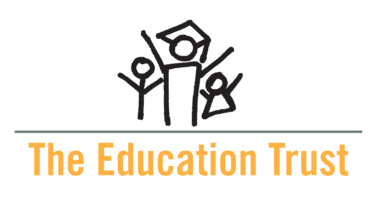Pushing, Prodding, and Cajoling Our Country Toward Educational Justice — Even Amidst Alarming Times
This first appeared on Huffington Post.
Count me among those who have been deeply worried about what the next four years will mean for social and educational justice.
While I’m a life-long Democrat, my concern is not that our president-elect is a Republican. Low-income students and students of color have had great Republican champions in the past — leaders who stood up for them and the quality of education they deserve when others wouldn’t. And I know there will be more champions to come on both sides of the aisle.
I’m worried, instead, because of the particularly heinous mixture of fear- and division-inducing vitriol that fueled the president-elect’s path to the White House. Words matter. And the hateful words that spewed from his mouth as a candidate — and then were volleyed by his staff, scribbled on campaign posters and T-shirts, and chanted at rallies — created real fears among the children and youth we serve, not to mention many of their teachers and family members.
To those who dismiss these fears, arguing that President-elect Trump and his supporters didn’t mean them, that it was just a little harmless “locker-room talk” or “rallying of the troops,” I say this: Virtually every trustworthy source points in the same direction — in the weeks since the election hate speech is significantly up, and actions of hate even more so. Call the hatemongers wrong or even the lunatic fringe if you will, but reports from educators and almost daily news accounts make it very clear that our schools are simply not immune from words and acts by those who feel newly empowered to diminish —even demonize — those who they perceive as different, whether they be students, parents, or educators.
No, expressions of hate aren’t new. Generations of education and civil rights advocates have spent their lives staring them down. And certainly, there isn’t a person on the Ed Trust team who hasn’t experienced them, either for who they are, because of whom we advocate for, or both.
But even though we were far from naive to the persistence of hatred and ignorance, this election knocked many of us off our normally sure stance. For a moment, advocates who had long prided themselves on never hesitating, never running from a fight, and never giving in were simply stopped dead in our collective tracks by doubt and real fear — for our country.
The challenge certainly wasn’t that we don’t know what to do in response to specific actions (or inactions) that threaten our young people. Indeed, Ed Trust has a very long record of calling out — damn the consequences — policymakers and others whose actions perpetuate injustices in our education system.
The challenge, rather, was that the messages of late are rooted in something more ominous but still inchoate — a kind of blurry, reactionary hatred, with fear-stoking language that we have not seen dominate our national dialogue in a long time. These are not the sounds of recent years, with quiet, if pernicious, foot-dragging in statehouses or whispers in comfortable communities across the country where adults worry that more or better for historically underserved kids will somehow always mean less for their kids. Though these forces have slowed progress, too, today’s is a new level of threat, turning the clock backward to a much uglier time, when children were spit on and yelled at and their buses pummeled with rocks.
As we’ve been thinking and talking about what all of this means for our work, we have come to the conclusion that the new rhetoric is more than simply a harsh reminder (as if we needed it) that the work that we and countless allies around the country do every day to advance opportunities and achievement for low-income children and children of color is far from done. We are up against more aggressive, more threatening and dangerous words — and, likely, eventually deeds — than we have been faced with in a long time.
So we join the many others who have called on the president-elect to repudiate the hateful speech and actions being undertaken in his name — not once or twice, off-hand in an interview, or as a throw-away line in an otherwise incendiary speech, but seriously and repeatedly, with crystal clear reminders that such hateful language and actions are not just immoral and wrong, but dangerous and un-American.
But beyond that, instead of simply continuing our efforts to advance educational equity and justice on cruise control (or even slowing them down for a while as some have suggested), we will immediately ramp them up.
To help more Americans see inequities they would prefer not to see — and to promote broader understanding that we are all better off if all young people, rather than just some, get the quality education they need and deserve — The Education Trust is beginning now to ramp up its efforts to mine and share critical data. To counter the doubters, we are ramping up our efforts to identify and tell the stories of schools and colleges that dispel myths about who can learn and who can’t. We also will ramp up our work with and support for practitioners who want to make a bigger difference in their schools and colleges, and accelerate our work with state and federal policymakers on both sides of the aisle to find common cause in advancing opportunity for the most vulnerable children.
And we will stand together with others — or alone, if necessary — to resist any effort to take the country backward on the progress it has made in raising sights — and results — for low-income students and students of color.
In both good times and bad, it has always been the job of advocates to stand up tall and take advantage of each opportunity to claw out every ounce of progress we can for the most vulnerable students. We will continue to do that job.
America’s young people can count us in — and up — for the fight.
Why do you advocate? Share what it means to you on social media, using either hashtag #AdvocacyMeans or #WhyIAdvocate.
Photo credit: Kim Johnson, Urban Oasis Studio








